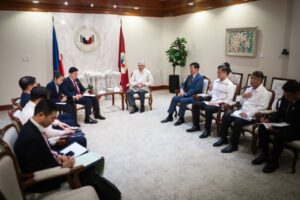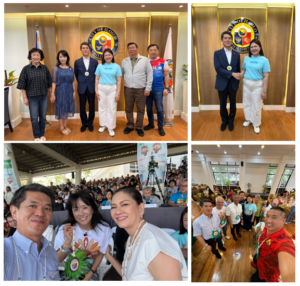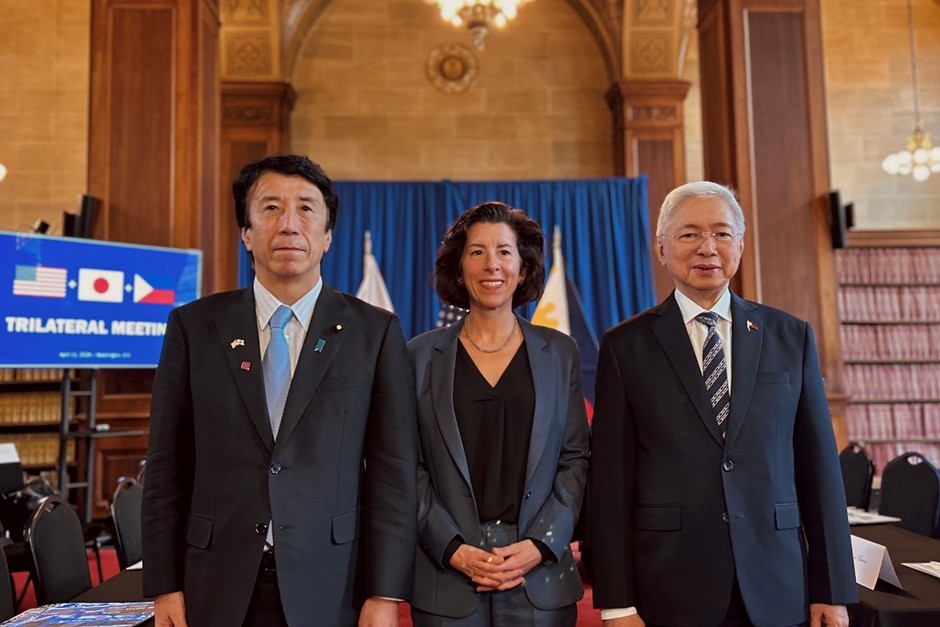
“A robust Philippine economy equates to a strong alliance.”
This was expressed by Department of Trade and Industry Secretary Alfredo Pascual during the inaugural Trilateral Economic Ministers Meeting between Japan, the United States, and the Philippines on April 11 in Washington, D.C.
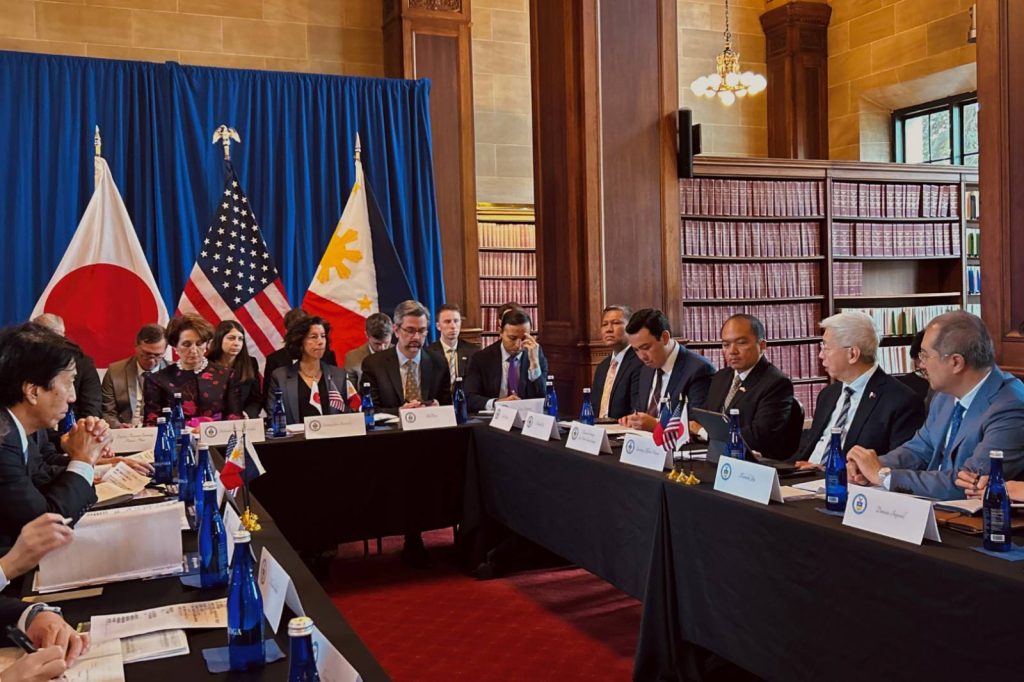
The meeting brought together Secretary Pascual and his counterparts Secretary Gina Raimondo of the US Department of Commerce, and Minister Ken Saito of the Japanese Ministry of Economy, Trade and Industry (METI).
In his opening remarks, the DTI Secretary highlighted the three countries’ deep friendship, strong economic ties and collective commitment to democratic values.
He explained their task as ministers in-charge of trade, industry, and commerce of their respective countries is to inject actionable details into their leaders’ joint vision statement, that includes cooperation in infrastructure and industrial projects.
Secretary Pascual also presented three key projects designed to spur growth in the Luzon Economic Corridor: Subic-Clark-Manila-Batangas Railway System, Clark International Airport Development and Expansion Initiative, and Clark National Food Hub. These initiatives are seen to create strategic connections between the developing areas of Subic and Clark, both former U.S. military bases, and the established manufacturing center in the Cavite-Laguna-Batangas (CALABARZON) region, a prime location for Japanese export-manufacturing firms.
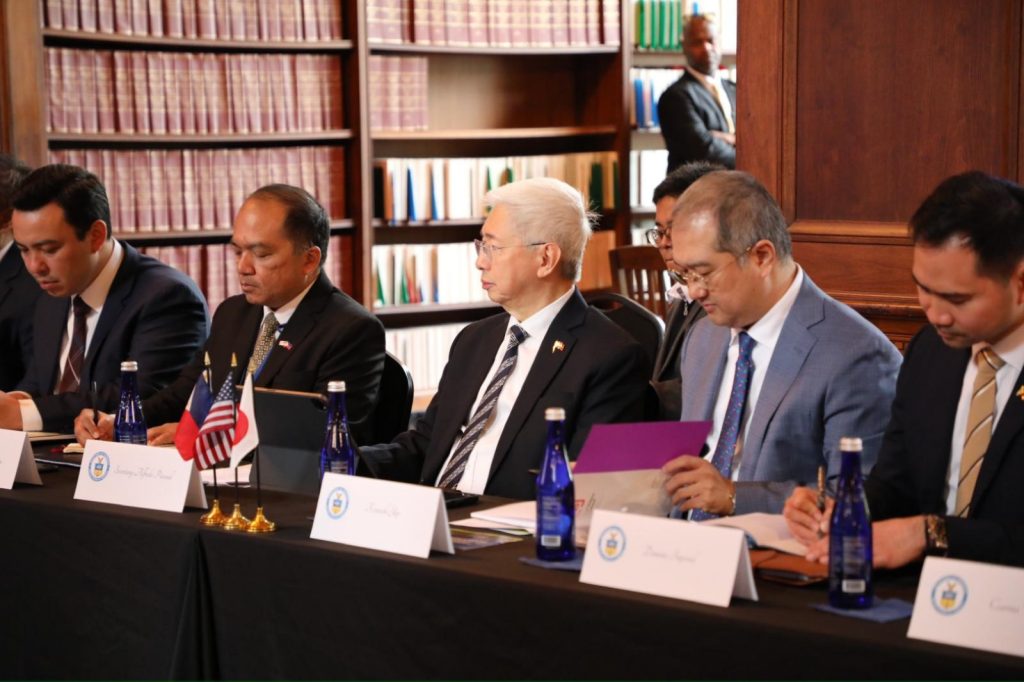
Furthermore, the DTI Secretary also stressed the importance of having a Critical Minerals Agreement (CMA) between the Philippines and the U.S. or, as an alternative, for the Philippines to accede to the US-Japan CMA (for a Trilateral CMA). According to him, this proposed agreement will be a good signal and an incentive for the private sector to invest in ore processing in the Philippines.
In his closing remarks, Secretary Pascual expressed optimism on future collaborations and urged sustained engagement to realize shared objectives. He also stressed the potential impact of proposed projects on economic development and social welfare, calling for continued communication and implementation efforts from all sides.
The Trilateral Economic Ministers Meeting lays the groundwork for dynamic cooperation among the three nations, setting a positive trajectory for future engagements and mutual prosperity.
